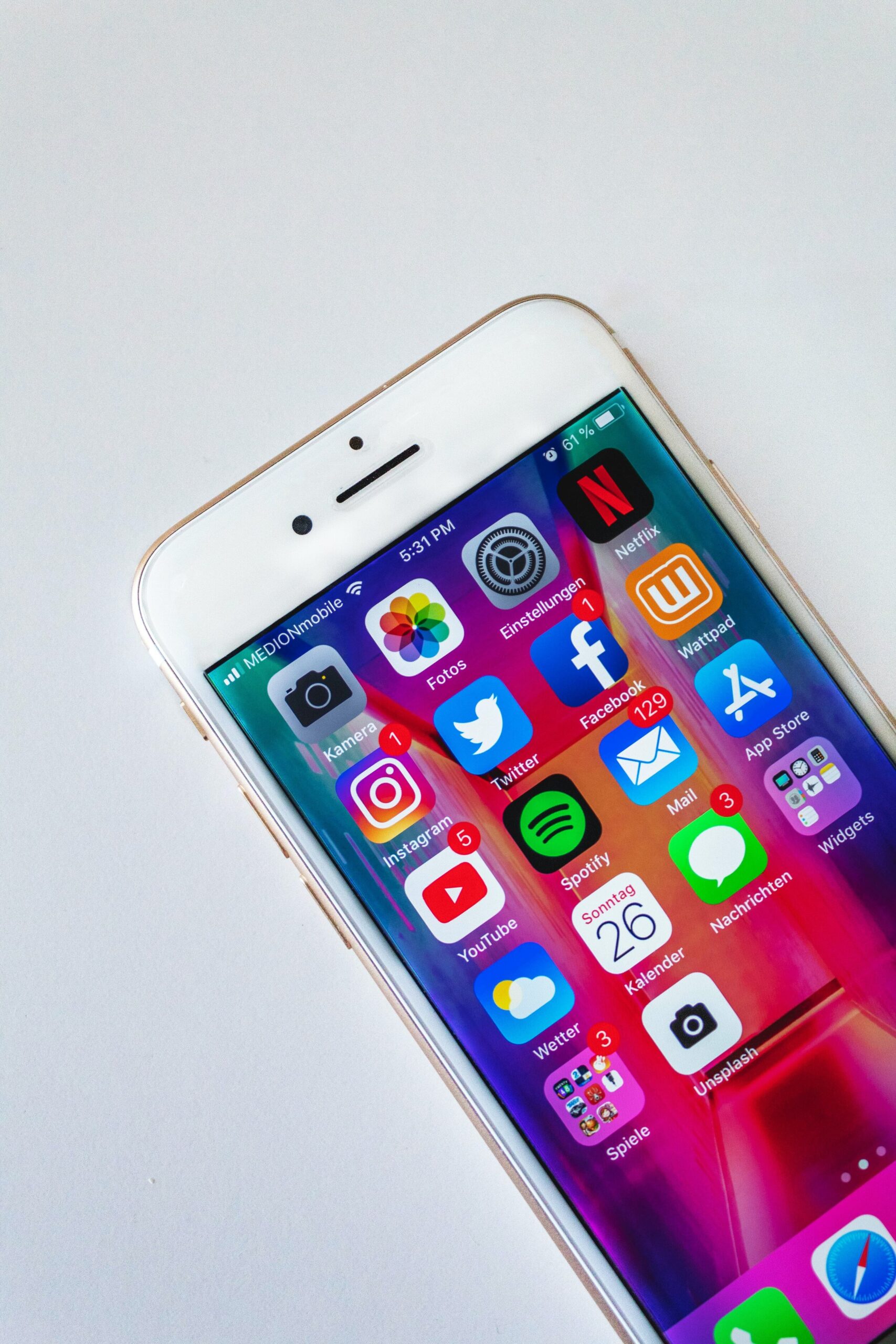
There is no dispute that we live in divided times. Media and information, from the extremes of the political spectrum to the center, invade our daily lives like an avalanche of data we simply cannot keep up with. Most of us are informed by our political and confirmation biases. Reinforcing our worldview are the news outlets – both real and fake – that cater to our views. The algorithms designed to deliver this content while maximizing revenue for advertisers and our social media connections that tend to be of a similar mindset to ourselves. At this point, it’s virtually impossible to get on the same page with different-minded people thanks to this self-perpetuating ecosystem.
Now, there is a call to dismantle Section 230 of 1996 Communications Decency Act, a once obscure provision that allows the online platforms the public uses on the internet to be absolved from liability for what their patrons publish. Many advocating for repeal say that the law creates a “free pass” for social media companies from legal responsibility over user-generated content – otherwise known as “internet exceptionalism.”
However, critics don’t actually understand what 230 does and why the law is so vital to the open operation of the Internet. They are actually working against their best interests.
This law was created well before the social media revolution that was Facebook, Twitter, and other platforms. Before its adoption, the United States saw a multitude of lawsuits between citizens for online libel that dragged the major online providers of the time into court. While the 1997 the Communications Decency Act was ruled to be unconstitutional by the U.S. Supreme Court, Section 230 was severed and remained in place and has been upheld as constitutional in the lower courts ever since.
The first real challenge to the law was in the 1997 court case “Zeran v. AOL.” The plaintiff accused the giant internet service provider and chat platform of not removing libelous false advertising posted by another AOL user that linked the plaintiff’s home phone number with the selling of Oklahoma City bombing t-shirts, which results in a multitude of harassing phone calls.
The ruling let America Online off the hook for what its users were posting. The judge for the case noted:
“Faced with potential liability for each message republished by their services, interactive computer service providers might choose to severely restrict the number and type of messages posted. Congress considered the weight of the speech interests implicated and chose to immunize service providers to avoid any such restrictive effect.”
Those words have carried on into more recent times via the now ubiquitous social media platforms. However, a new challenge has risen to once again question Section 230; the political divide.
During the Trump Administration, the belief that the conservative side of the aisle was having its speech censored more than the liberal side of society on social media was rampant in the right. This was essentially the zeitgeist that was simmering in America’s consciousness for years prior to the January 6 Capitol Riot.
This entire situation exploded in the aftermath of that attack thanks to the former President Trump’s ban from major social media platforms like Facebook and Twitter. Recently this topic was re-energized when Facebook decided to extend Trump’s ban another two years, until after the 2022 U.S. midterm elections.
It’s important to understand how Facebook – and other social media platforms – operate in the United States. They’re private corporations beholden only to the rule of the law and also their shareholders. Like walking into a restaurant without shoes on, social media companies can refuse to serve whomever they want at their will with the exception of noted protected classes and traits. Banning a former President or a regular user that violates the policies of the company has no First Amendment or Section 230 argument in the equation. That being said, how Facebook applies their policies is constantly subject to debate as many see them as enforcing their policies arbitrarily.
There is also no requirement that anyone use Facebook or Twitter. People can choose to move to other platforms. In 2020 social media platforms Parler, Gab, and MeWe saw a sharp rise in their user count as many conservatives migrated to these platforms because they believed that they were being censored by Facebook and Twitter. Academic studies during this period have shown that Facebook’s algorithms and content moderation decisions actually favored conservative commentary over liberal commentary but at that point the die was cast.
Parler’s founder and former CEO notably has called for the removal of Section 230, a sentiment echoed by millions of conservatives and right-wing extremists on these smaller platforms.
But here’s the thing: Killing Section 230 would kill Parler, Gab and MeWe. If the laws roll back to pre-Section 230 times, then there would be legions of lawsuits against Parler itself over libel, slander, and defamation and easily bankrupt the platform. Read through any Parler post comments section and you will see hyperbole, libel, and demonstrably false information everywhere. Facebook has this issue as well (though a bit less extreme) as the extremists have mostly left the platform for Parler and others.
The only way for a Parler to survive without Section 230 protections would be to ramp up the filtering and censorship to the highest possible level to prevent that libelous speech from being published. If you think Facebook is bad for moderating content – given the explosion of fake news on the site – you haven’t seen anything yet.
It would be impossible for any social media platform to keep up with the firehose of libel on its platform. Artificial intelligence (AI) would have to be programmed to aggressively decide to block posts over easily allowing them. That would explode the already concerning false-positive ratio that platforms like Facebook see. An army of content moderators would be continuously playing catchup to the millions of users whose default state of being online appears to be “uncivil” at best.
Even for horrific content, it’s always a game of catchup. The New Zealand shooter was able to live-stream his atrocities for some time before Facebook caught it and took it down. So, do we sue Facebook for the choices of a murderer who decides to live stream a mass murder? Or conversely, do we understand that it’s almost impossible to effectively police 4 billion daily users? Without Section 230, all social media platforms face these hard choices.
Section 230 isn’t perfect. Legitimate critique of its lack of a clear “good faith” clause and also how it could potentially hinder state law enforcement investigating sex trafficking are topics that seriously need addressing. However, a free expression protection that was conceived of in the dial-up Internet era is critical in allowing an entire society to publish their thoughts online on platforms that are protected from having liability for their users’ poor choices.
This is what separates the United States from many other countries that enforce the filtering of political and other speech. Without a law like Section 230, censorship will have to reign supreme. It is laughable to think that the Parlers of the world are going to go broke by letting their users post whatever they want when they don’t have a liability shield.
Humans want the ability to freely express themselves as they see fit and the platform providers want them as users. Disrupt that ability and we may actually see conservatives and liberals agree on a society-wide issue for the first time in years.

Nick Espinosa
Nick is the founder and CEO of Security Fantatics, the Cybersecurity/Cyberwarfare division of BSSi2dedicated to designing custom Cyberdefense strategies for medium to enterprise corporations. As a member of the Board of Advisors for Roosevelt University’s College of Arts and Sciences as well as their Center for Cyber and Information Security, the Official Spokesperson for the COVID-19 Cyber Threat Coalition and a board member of Bits N’ Bytes Cybersecurity Education as well as Strategic Cybersecurity Advisor for the Private Directors Association, Nick helped to create an NSA certified curriculum that will help the Cybersecurity/Cyberwarfare community to keep defending our government, people and corporations from Cyber threats globally. In 2017 Nick was accepted into the Forbes Technology Council, an invitation-only community for world-class CIOs, CTOs and technology executives, and is a regular contributor of articles which are published on forbes.com as well as smerconish.com.






